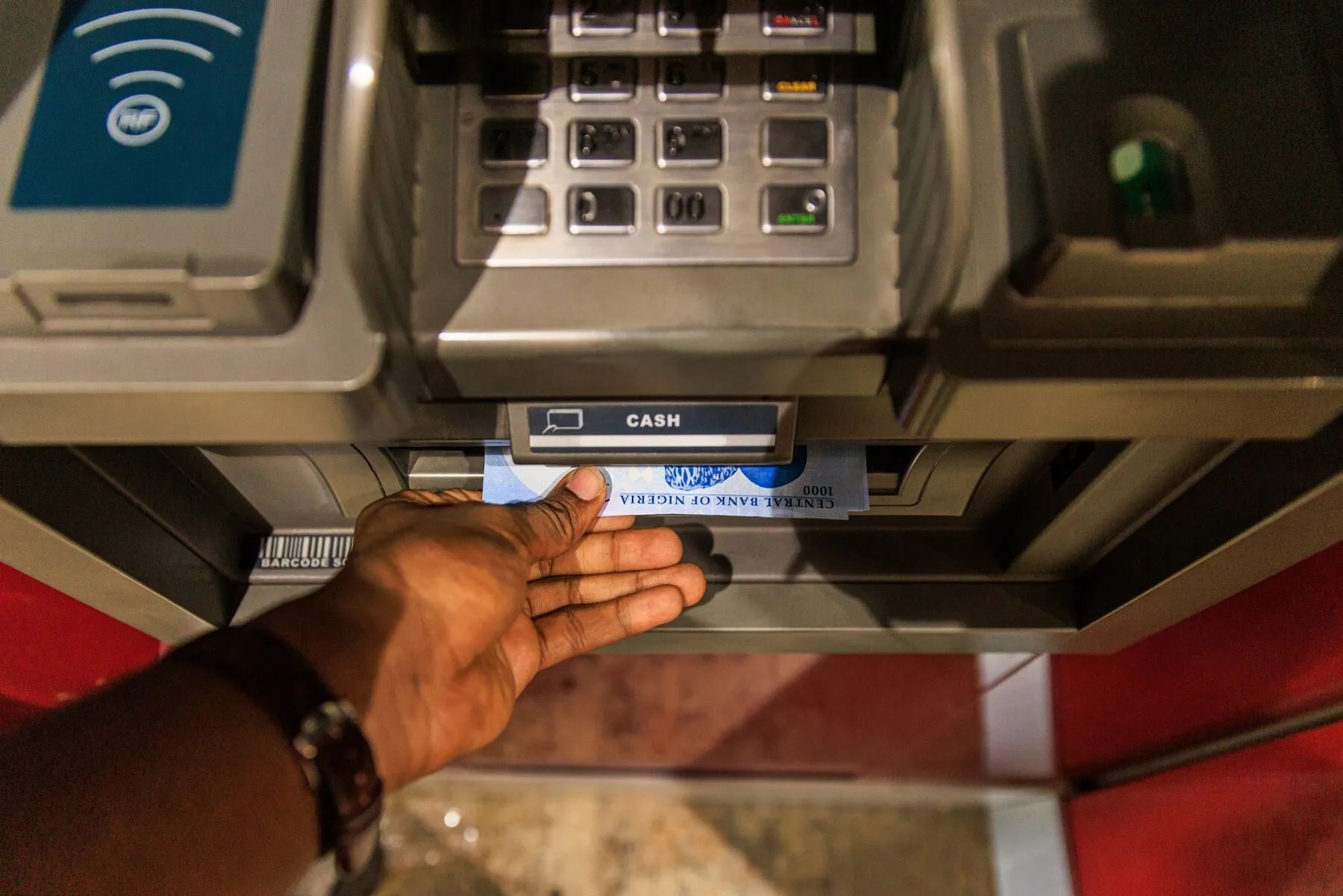🍔 Quick Bite: Across Africa, ATMs are going quiet as mobile money, POS networks, and digital payments take their place. From Kenya’s booming M-Pesa transactions to Nigeria’s record ₦284 trillion in e-payments, cash is losing its grip. The continent isn’t going cashless; it’s becoming agent-led, data-driven, and irreversibly digital.
🧠 The Breakdown
Automated teller machines (ATMs), once symbols of financial inclusion and convenience, are quietly fading from African cities. In South Africa, Standard Bank has closed 1,942 ATMs in five years, cutting its network from 9,321 in 2019 to 5,562 in 2024. The country’s four largest banks shut 233 ATMs in the first half of 2024 alone. Standard Bank closed 76, Absa 75, Nedbank 42, and FNB 40.
This trend aligns with data from the Visa-Discovery SpendTrend25 report, which found that 84% of South Africans now prefer digital payments for transactions exceeding R100 ($5). Across the continent, a similar story is unfolding with local nuances. ATM numbers in Kenya fell to 2,282 in 2023, the lowest in five years, according to the Central Bank of Kenya (CBK). In Nigeria, machines often sit idle or run out of cash entirely. Ghana is also seeing a steady decline in ATM usage as mobile money adoption accelerates.
Egypt’s government, meanwhile, is actively steering the population away from physical cash through policy measures.
These are not isolated events. Together, they signal a broader transition already well underway. Africa’s largest economies are steadily moving past their dependence on cash. What was once a cash-first culture is becoming digital by habit, with mobile payments and electronic transfers becoming part of daily life.
When ATMs go silent, mobile rails get louder
In Kenya, mobile money isn’t just growing, it’s swallowing everything. Between January and September 2024, transactions through mobile money platforms reached KES 6.5 trillion (about $43 billion), a 13% jump from the previous year. There are now over 79 million active wallets, and more than 317,000 agents across the country, roughly one agent for every 150 adults.
Interestingly, the number of transactions has declined even as their total value has risen. In May 2025, Kenya recorded 214.5 million mobile money transactions, down nearly 30% from April’s 303 million. Yet, the total value climbed from KES 699 billion ($5.39 billion) to KES 713 billion ($5.51 billion). This pattern suggests that people are making fewer but higher-value payments, shifting from small personal transfers to business settlements, bill payments, and e-commerce transactions.
In Nigeria, electronic payments reached ₦284.99 trillion in the first quarter of 2025, a 17.7% year-on-year increase. Point-of-sale (POS) transactions soared from ₦3.62 trillion in Q1 2024 to ₦10.45 trillion this year, a 209% jump. The number of registered POS terminals now stands at 8.36 million, with nearly six million active, more than double the figure from last year.
This rapid growth has drawn closer scrutiny. The Central Bank of Nigeria’s new geo-tagging rule requires every POS device to transmit its exact location with each transaction. The policy aims to curb fraud and discourage “roaming agents” who move devices between states or sell access to unregistered operators. Any terminal found processing payments more than ten metres from its registered location risks being flagged or blocked.
In Ghana, mobile money continues to outpace legacy channels. The country recorded 75.2 million registered mobile money accounts and transaction values exceeding GHS 365 billion in April 2025. Driven largely by MTN MoMo and a thriving agent network, mobile wallets now handle many payments that ATMs once processed.
Egypt’s shift is being led by policy. The Central Bank has set withdrawal limits, promoted digital wallets, and expanded national systems like Meeza and InstaPay. Data from the National Telecom Regulatory Authority (NTRA) shows mobile wallet transactions hit EGP 943.4 billion in the second quarter of 2025, up 72% from EGP 548.6 billion a year earlier.
The new money infrastructure
Africa isn’t becoming “cashless” in the Western sense; it’s becoming agent-driven. The continent’s new cash network is built on people rather than machines. Mobile money agents and merchant POS operators now form the backbone of daily transactions.
But this transition introduces new constraints. Agent liquidity has become crucial. Where banks once ensured ATMs were stocked with cash, they now need to support millions of agents who must maintain physical float to process withdrawals and deposits. When agents run out of cash, service grinds to a halt. In Nigeria, these liquidity costs often rise during periods of high demand.
Regulation is another pressure point. Nigeria’s geo-tagging rule, the shift to ISO 20022 standards, and stricter terminal auditability are intended to secure the network, but enforcement can exclude smaller, informal operators who cannot afford to upgrade devices or cover the compliance overheads.
Data could then become a point of leverage. Every POS, agent, and mobile wallet transaction creates forensic insight. Banks and fintechs with the capacity to interpret this data can build better products and deeper financial intelligence. Regulators, too, gain greater visibility into financial flows. But this increased transparency raises privacy concerns, as users may be subject to greater surveillance through everyday economic activities.
The direction is clear, but the transition remains uneven across the continent. The real leverage now lies not in controlling machines, but in owning the rails, the data, and the agent networks that power Africa’s digital economy.
Get passive updates on African tech & startups
View and choose the stories to interact with on our WhatsApp Channel
ExploreLast updated: October 6, 2025





